June 21, 2025 | 01:27 GMT +7
June 21, 2025 | 01:27 GMT +7
Hotline: 0913.378.918
June 21, 2025 | 01:27 GMT +7
Hotline: 0913.378.918
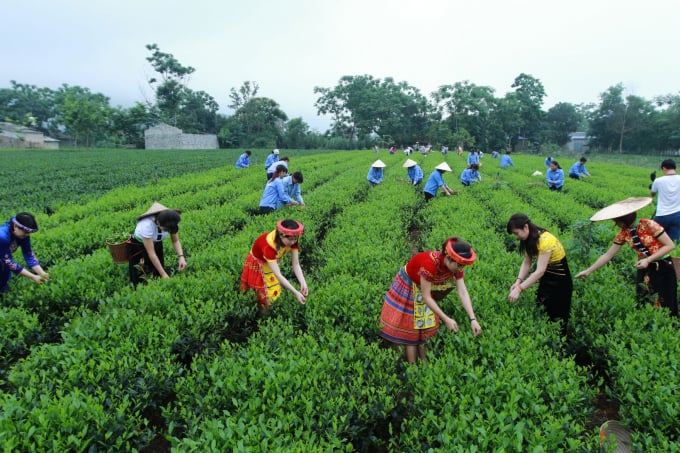
Tea is one of the key agricultural products exported to the Russian market. Photo: Ba Thang.
Vietnam is now the top Southeast Asian trading partner of the Russian Federation in terms of trade volume. Between 2018 and 2020, bilateral trade between Vietnam and Russia reached around USD 4.5 billion per year, with agricultural accounting for 18-20% of total trade, or over USD 900 million per year. In comparison to USD 500 million per year in 2018, agriculture's overall import-export turnover surged by 80 percent.
The increasing trend is expected to continue until 2021. By the first ten months of this year, Vietnam's agricultural, forestry, and fisheries exports to Russia totaled around USD 469 million, an increase of 32.6 percent year on year. Vietnam's primary exports to Russia are seafood, coffee, cashew nuts, fruit, tea, and wood. Russia's primary imports are fish, wheat, fertilizers, and lately, meat and dairy goods.
According to the Ministry of Agriculture and Rural Development, the structure of the two nations' import and export goods does not compete directly but rather complements one another. However, this turnover is still modest in comparison to the economic potential, the two nations' long-standing political ties, and the combined population of 250 million people.
Vietnam's export revenue would exceed USD 544 billion in 2020, including USD 41.2 billion in agricultural products. Exports of agriculture, forestry, and fisheries goods were estimated to reach USD 38.76 billion in January-October 2021, up 13.1 percent year on year. In the setting of the COVID-19 pandemic, which is wreaking havoc on all facets of social life, agriculture can be seen as possessing the dual goal of preventing the pandemic and promoting socioeconomic growth. Vietnam is Southeast Asia's second-largest agricultural exporter and ranks 16th globally in terms of agricultural, forestry, and fisheries export values.
Determined to expand the export market in order to ensure agriculture's continued viability as the economy's backbone, MARD advocates for the promotion of trade between Vietnam and Russia in order to transform this market into a hub for Southeast Asia and the Commonwealth of Independent States - SNG (former the Soviet Union).
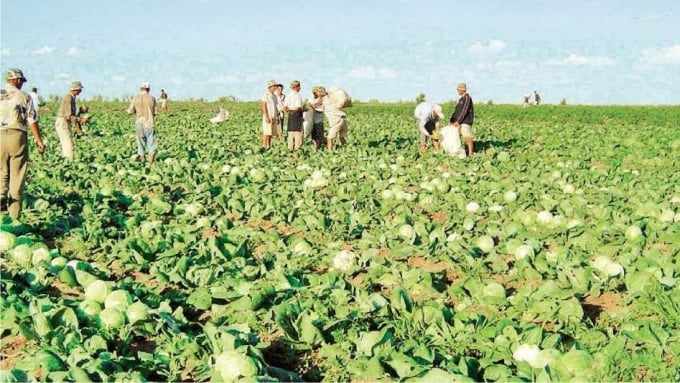
The structure of Vietnam - Russia import and export goods does not compete directly but rather complements one another. Photo: TL.
Another element fueling this trend is the Free Trade Agreement between Vietnam and the Eurasian Economic Union (AEAU), which entered into force on October 5, 2016, with Russia as a founding member. According to the AEAU Agreement, certain taxes on agricultural goods will get lower incentives, with some commodities being cut to 0% when the Agreement takes effect.
On that basis, MARD organized the "Online forum to promote agricultural and aquatic trade between Vietnam and the Russian Federation" on November 23 in collaboration with the Russian Federation's Ministry of Agriculture, the Russian Embassy in Vietnam, and the Vietnamese Embassy in the Russian Federation.
The event is attended by representatives from state management agencies, provincial and city leaders, industry groups, and a significant number of firms engaged in the trade of agricultural and fisheries goods between the two nations. This program seeks to strengthen bilateral agricultural cooperation while also marking President Nguyen Xuan Phuc's visit to Russia.
The forum's objective is to link enterprises in the two nations, promote trade, and elevate agricultural revenue towards USD 10 billion. The organizers anticipate that the meeting will serve as a venue for parties to discuss bilateral collaboration, leverage strong goods, and most importantly, transform "challenges into opportunities" as the Covid-19 epidemic unfolds.
Minister of Agriculture and Rural Development Le Minh Hoanpreviously collaborated with Russian Federation Ambassador to Vietnam Bezdetko in October 2021. Minister Le Minh Hoan said at the meeting that the two countries have a foundation for growth via many trade promotion programs and conferences between their enterprises. At the meeting, Minister Le Minh Hoan said that the two countries have a premise for development in many trade promotion projects and forums between businesses of the two sides.
The head of Vietnam's agricultural sector hoped that enterprises on both sides would expand their communication of precise information, assist in removing roadblocks quickly, and give a blueprint for the trade to operate at peak performance.
At the event, a variety of food safety legislation, business guidelines for the two nations, and proposals and solutions to improve trade cooperation will be reviewed. Additionally, trade groups and industry associations are urged to provide information regarding the obstacles, difficulties, and experiences associated with the import and export of agricultural and aquatic goods between Vietnam and Russia.
Translated by Linh Linh
![Turning wind and rain into action: [10] Advancing accessible climate services for farmers](https://t.ex-cdn.com/nongnghiepmoitruong.vn/608w/files/linhnhp/2025/06/20/1911-z6704423696987_15fd32ffc26d590d204d520c9dac6786-nongnghiep-161854.jpg)
(VAN) Not only does it help farmers 'avoid droughts and rains,' the development of agricultural climate services also enhances their ability to proactively adapt to a rapidly changing climate.
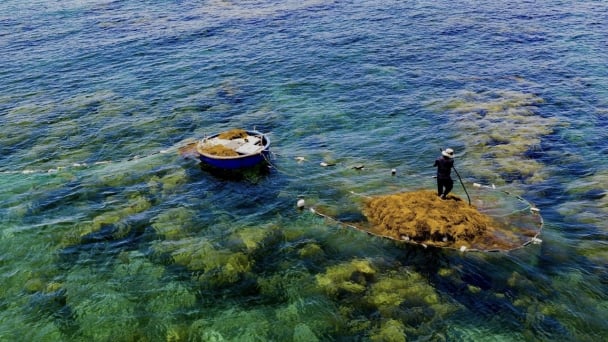
(VAN) With international assistance, the harvesting of sargassum seaweed in Quang Ngai has become increasingly regulated, thereby safeguarding marine life and ensuring the stability of coastal communities' livelihoods.
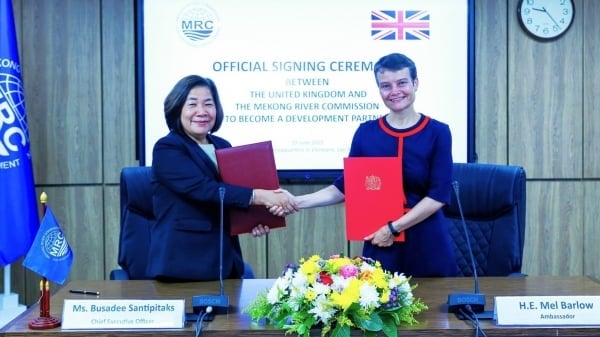
(VAN) On June 19, the United Kingdom officially became a Development Partner of the Mekong River Commission.

(VAN) Biodiversity is being threatened by traditional remedies made from wildlife. Traditional medicine and humans must change to live in harmony with nature.

(VAN) Agrifood investment and finance solutions for people and the planet.

(VAN) Microplastic contamination has become pervasive in seafood, posing unprecedented challenges for food safety and marine ecosystems.
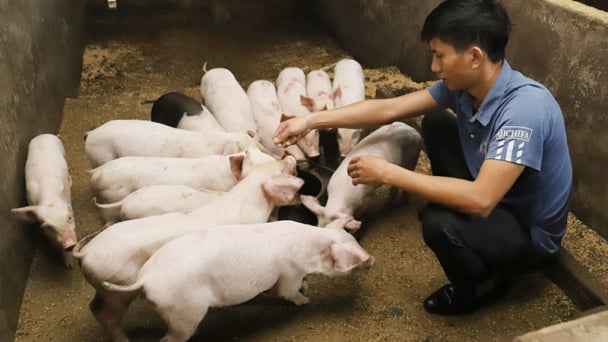
(VAN) Proactively using vaccines, combined with transport control and enhanced surveillance, is the only viable path toward biosecure and sustainable livestock production in Vietnam.